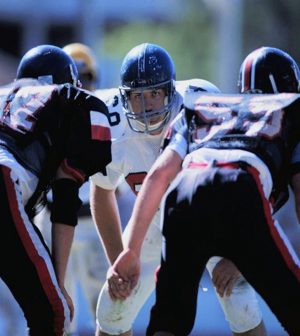- Understanding the Connection Between Anxiety and Depression
- How Daily Prunes Can Influence Cholesterol and Inflammation
- When to Take B12 for Better Absorption and Energy
- Epsom Salts: Health Benefits and Uses
- See What Saffron Can Do for Sleep and Heart Health
- 6 Common Mistakes to Avoid Before Your Physical
- Can Sweating Really Help You Beat a Cold?
- Strengthening Your Relationship: Practical Strategies
- Skip Storing This Everyday Product in the Fridge Door
- Green Tea + B3 Pairing May Boost Brain Health
Limited-Seating Football Games Don’t Seem to Spread COVID: Study

THURSDAY, Aug. 19, 2021 (HealthDay News) – Football games with some fans in the stands may not be the super spreader events they were once feared to be.
An analysis of National Football League (NFL) and National Collegiate Athletic Association (NCAA) games found no substantial increase in local COVID-19 cases at those with limited attendance.
“There was a lot of speculation in the media and on social platforms regarding whether in-person attendance at NFL and NCAA regular season football games resulted in local COVID-19 spread,” said first author Asmae Toumi, of Massachusetts General Hospital Institute for Technological Assessment in Boston. “We thought it was important to assess whether these games with attendance caused an increase in cases.”
Researchers matched counties hosting one or more games with in-person attendance in 2020 and 2021 with those with no in-person attendance and an identical game schedule for up to 14 days. The matched counties were similar in size, COVID-related restrictions and trends.
Of 796 games, 528 games had fans in the stands.
The effect of in-person attendance on COVID spread did not exceed an average of five new cases a day per 100,000 residents.
This suggests the games were not associated with substantial risk or increased local COVID-19 cases, researchers said.
“Before conducting the study, our conjecture was that football games would cause an explosion in the number of cases; however, it turns out that this is not the case and the games did not lead to a major increase in the number of cases,” said senior study author Turgay Ayer, an associate professor at Georgia Tech in Atlanta.
His team suggested that a combination of factors helped prevent the COVID spread at the games. They included crowd size limits, strict mask use and open air.
Study co-author Jagpreet Chhatwal, associate director of the MGH Institute for Technology Assessment, said the findings can inform fan attendance policies for the 2021 football season.
“In-person attendance can be safe as long as social distancing is maintained,” he said. “Though we have COVID-19 vaccines in 2021, we need to remind ourselves that not everyone is vaccinated, and vaccines are not 100% effective.”
So, before you head to the stadium, remember to pack a face covering. And, experts recommend, when you take your seat, be sure it’s covering your nose and mouth.
The findings were published Aug. 17 in JAMA Network Open.
More information
The National Football League has a new policy governing games canceled because of a COVID outbreak among unvaccinated players.
SOURCE: Massachusetts General Hospital, news release, Aug. 17, 2021
Source: HealthDay
Copyright © 2026 HealthDay. All rights reserved.










